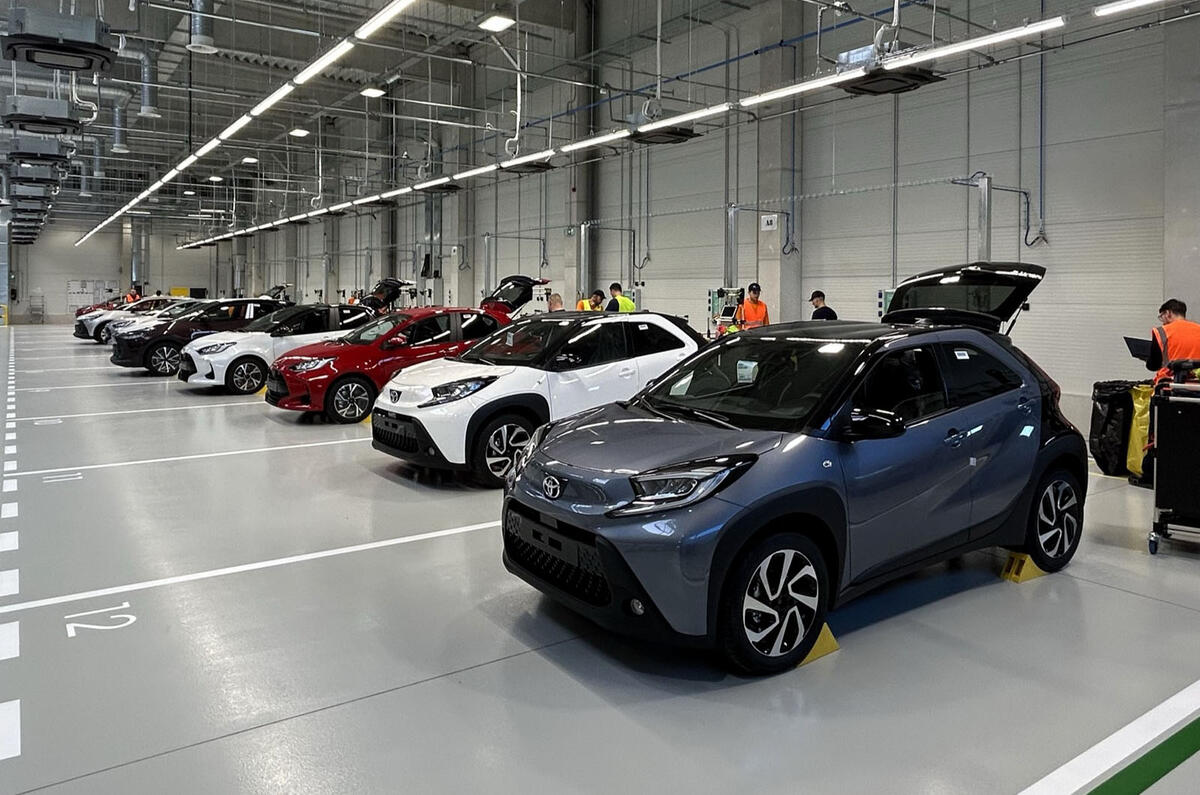Toyota will build its next battery-electric car at the Aygo X and Yaris factory in the Czech Republic, the company has confirmed.
An investment of €680 million (£592m) will be used to expand the factory from 152,000m2 to 173,000m2, adding a new battery production line, paint shop and welding facility.
The new development will increase the plant’s capacity beyond its current 220,000 cars per year, said Toyota, and the majority of components used for the new model will be sourced from within the Czech Republic.
The company has yet to confirm what form the new model may take. The company referred to “multi-pathway” production, suggesting it might be a Europe-focused EV based on the same TNGA-B structure as the Yaris.
However, it could occupy an altogether different market segment. Toyota Europe product and marketing boss Andrea Carlucci told Autocar earlier this year that an electric car in the vein of the Yaris was not yet viable. "We have deliberately decided to start [our electric car sales] in the fastest-growing segments [C, D and E],” he said. “The right moment will arrive, but this is not quite now.”
Toyota’s investment in the factory is backed by €64m (£56m) of funding from the Czech government. Czech prime minister Petr Fiala described the development as “crucial” for the future of the nation’s car industry, adding it will create 245 new jobs.







Join the debate
Add your comment
Given that Toyota already build the Aygo and Yaris at the same Czech Republic factory, you have to ask yourself how much influence did the government's 10% input to the development costs, make?
It would have made little sense for Toyota to produce the EV Aygo and Yaris version elsewhere in Europe, so the question is, did they threaten to close down production altogether unless the government contributed towards development costs? The Gov. don't appear to be getting much return for their investment if it's only going to create 245 new jobs.
EU rules are meant to allow subsidies to companies, but only if they can get around market distortion and unfair competition. Member states can provide aid only under specific conditions, particularly for sectors that support economic growth or address market failures. As usual, this went out the EU window years ago and is ignored (I think it was France who first broke it). It should be either full aid is allowed, or international trade rules totally ban it. As it stands, governments can use taxpayer's money at will...let's say of one if their MPs constituencies is prone to floating voting. The EU is rotten to its core and we're best out of it for a thousand reasons. Did you know that Slovakia got EU money to entice JLR to build its factory there at the time of Brexit? So some UK money (third highest contributor) went to lure a UK-based company to an EU one - we paid (in part) for it.